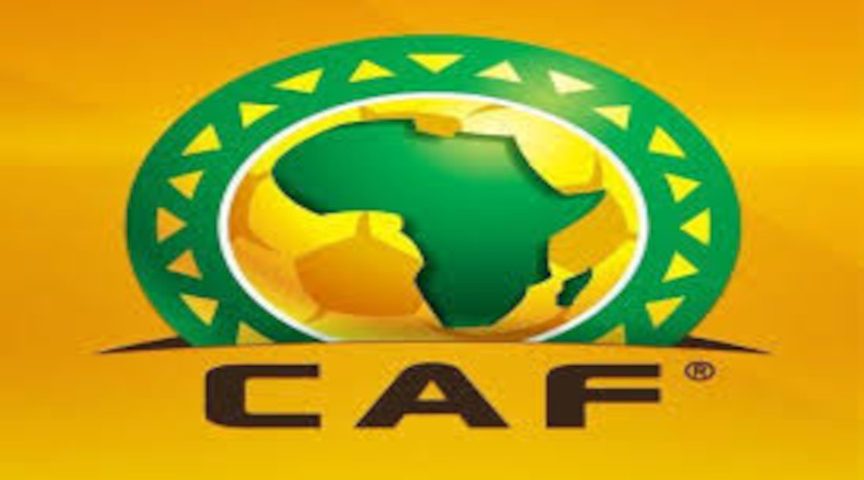The Good that CAF Did (Part Two)

The Good that CAF Did (Part One)
August 16, 2025
The Forgotten Champion – The Vincent Suter Chemweno Conundrum
September 6, 2025By Satish Sekar © Satish Sekar (August 15th 2025)
“The evil that men do lives after them; The good is oft interred with their bones;”[1]
A Great but Courageous Risk
Just two days after the first Constitutional Assembly had taken place in Sudan the first Africa Cup of Nations began in Khartoum. It had been intended that the four founding members of the Confédération Africaine de Football (CAF) would contest this tournament, but only three teams would take part as Egypt, Ethiopia and Sudan would not compromise with Apartheid. South Africa would send an integrated team or they would not be allowed to play.
Fred Fell, South Africa’s representative informed CAF that the South African government would agree to a team of all whites or a team of blacks only. The others refused to accept the suggestion – a gross compromise with Apartheid.
The inaugural Africa Cup of Nations tournament was due to start just two days later. South Africa was suspended from the competition. It was a great risk, but a very courageous one as CAF could not know if the competition and CAF itself would survive with just three countries. At very short notice the tournament had to be reorganised rapidly with the three remaining teams – Egypt, Ethiopia and Sudan.
The First AFCON and its First Stars
It was a very courageous decision – after all, this was the first Africa Cup of Nations (AFCON) and there was next to no time to organise it, but ultimately its success would be judged on the pitch. Politics had clearly reared its ugly head – albeit principled – but the football had to convince on the pitch. This was representing African football on the world stage.
It wasn’t the first international competition in Africa – that honour belongs to East Africa’s Gossage Cup, which took place for the first time in Nairobi between Kenya and Uganda in 1926 and it too faced problems over shameful racism and colonialism.[2] CAF and the federations of Egypt, Ethiopia and Sudan in particular had no way of knowing if the tournament would succeed, especially without South Africa, but Apartheid was not an issue that could be compromised on even if it resulted in the death of CAF.
Ethiopia reached the final with a walk over South Africa. Egypt and Sudan faced each other at Khartoum’s Municipal Stadium. Zamalek’s Raafat Attia Helmy[3] had the hour of scoring the first goal in the history of the Africa Cup of Nations – a penalty after 21 minutes. Al-Merreikh’s Boraî Ahmed El-Bashir – he died aged 80 in 2012 – scored Sudan’s first goal in AFCON history after 58 minutes to equalise, but the star of the first AFCON, the late Al-Ittihad and Egypt legend Mohamed Diab Al-Attar, better known as Ad-Diba, scored the first winner in the tournament’s history after 72 minutes on February 10th 1957.
Egypt had reached the final at the hosts’ expense.
AFCON’s First Legend of Legends
Ad-Diba was AFCON’s first great star – he shone brightly. He scored after 2 minutes – becoming the first person to score in an AFCON Final. He completed the first brace in the competition’s history after 7 minutes and the first hat-trick after 68 minutes. There was no doubt who the star of the first AFCON was, but Ad-Diba was not finished. With a minute of normal time remaining, he scored his fourth. Not surprisingly, he was named the tournament’s Best Player.
Ad-Diba remains the only man to score four in an AFCON Final. It was fitting in its way that the only time another player scored four in the final of AFCON it had required a replay and that was in Egypt in 1974. The late great Pierre Ndaye Mulamba – the Democratic Republic of Congo (then Zaire) icon scored all four of his team’s goals in the 2-2 draw against Zambia and the 2-0 win in the replay. That was and will remain the only AFCON Final that had a replay.
The Africa Cup of Nations had arrived three years before Europe’s first championship and it had its first undoubted star in Mohamed Diab Al-Attar. It would prove to have longevity. Both CAF and the Africa Cup of Nations had survived the uncertain start. Their next test would be just two years later – the same one. Should CAF compromise, or should its principles triumph? 1959 would provide the definitive answer to that question.
[1] Part of Marc Antony’s funeral oration for Julius Cæsar in William Shakespeare’s play Julius Cæsar.
[2] We will feature that competition and its importance soon.
[3] He broke through at Al-Ittihad in 1952, but was most successful at Zamalek, winning the Egyptian title in 1959-60, 1963-64 and 1964-65. He won four Egyptian Cups too. Attia died in a car crash in 1978 aged just 44-years-old. He played in two AFCONs, losing the second to Ethiopia in 1962.


